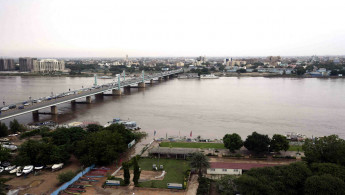Sudan opposition to stage 'sit-at-home' strike despite government threats
Sudanese opposition groups and activists on Sunday pressed on with plans to hold a "sit-at-home" strike against fuel subsidy cuts, despite a warning from President Omar al-Bashir that anti-regime protests would be crushed.
Activists called for workers to stay at home Monday as part of a "civil disobedience movement", the second such initiative after a similar three-day strike last month which had a mixed response.
Groups of protesters have staged rallies in Khartoum and some other cities since the authorities announced a 30 percent hike in petrol and diesel prices in November that has led to a sharp rise in the cost of other goods, including medicines.
"We are backing the Sudanese people to observe civil disobedience on December 19," said the opposition Umma party in a statement, while the Communist Party also offered its support.
Groups of activists, actors, journalists, lawyers, teachers and pharmacists have taken to social media to offer support and launched a signature campaign backing the "sit-at-home" strike.
The Sudan People's Liberation Movement-North (SPLM-N), which is fighting government troops in Blue Nile and South Kordofan states, also urged its members to support the strike.
A previous round of fuel subsidy cuts in 2013 sparked serious unrest that was only suppressed by a deadly crackdown that drew international condemnation.
The government is determined to avoid any repetition of that kind of unrest and has rounded up several opposition leaders to prevent widespread protests.
On December 12, Bashir vowed to crush any new anti-regime protests as the authorities did three years ago.
Rights groups say about 200 lives were lost in clashes with security forces in the 2013 crackdown on street protests, while the government puts the death toll at less than 100.
Khartoum has been forced to progressively reduce fuel subsidies since 2011 when South Sudan seceded and took with it nearly three-quarters of the formerly united country's oil reserves.
Agencies contributed to this report.





 Follow the Middle East's top stories in English at The New Arab on Google News
Follow the Middle East's top stories in English at The New Arab on Google News


